Related Research Articles
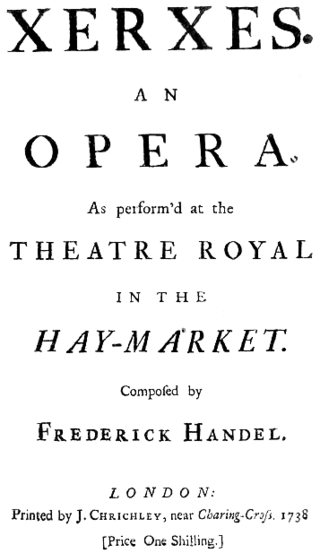
Serse is an opera seria in three acts by George Frideric Handel. It was first performed in London on 15 April 1738. The Italian libretto was adapted by an unknown hand from that by Silvio Stampiglia (1664–1725) for an earlier opera of the same name by Giovanni Bononcini in 1694. Stampiglia's libretto was itself based on one by Nicolò Minato (ca.1627–1698) that was set by Francesco Cavalli in 1654. The opera is set in Persia about 470 BC and is very loosely based upon Xerxes I of Persia. Serse, originally sung by a mezzo-soprano castrato, is now usually performed by a female mezzo-soprano or countertenor.

La Cenerentola, ossia La bontà in trionfo is an operatic dramma giocoso in two acts by Gioachino Rossini. The libretto was written by Jacopo Ferretti, based on the libretti written by Charles-Guillaume Étienne for the opera Cendrillon with music by Nicolas Isouard and by Francesco Fiorini for Agatina, o la virtù premiata with music by Stefano Pavesi. All these operas are versions of the fairy tale Cendrillon by Charles Perrault. Rossini's opera was first performed in Rome's Teatro Valle on 25 January 1817.
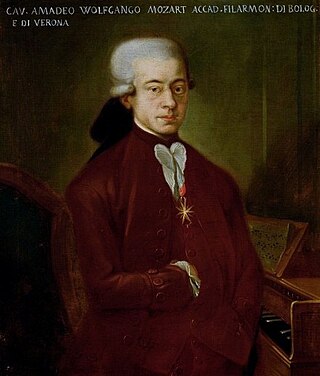
Il re pastore is an opera, K. 208, written by Wolfgang Amadeus Mozart to an Italian libretto by Metastasio, edited by Giambattista Varesco. It is an opera seria. The opera was first performed on 23 April 1775 in Salzburg in the Rittersaal of the Residenz-Theater in the palace of the Archbishop Count Hieronymus von Colloredo.

The Imaginary Invalid, The Hypochondriac, or The Would-Be Invalid is a three-act comédie-ballet by the French playwright Molière with dance sequences and musical interludes by Marc-Antoine Charpentier. It premiered on 10 February 1673 at the Théâtre du Palais-Royal in Paris and was originally choreographed by Pierre Beauchamp.

Tolomeo, re d'Egitto is an opera seria in three acts by George Frideric Handel to an Italian text by Nicola Francesco Haym, adapted from Carlo Sigismondo Capece's Tolomeo et Alessandro. It was Handel's 13th and last opera for the Royal Academy of Music (1719) and was also the last of the operas he composed for the triumvirate of internationally renowned singers, the castrato Senesino and the sopranos Francesca Cuzzoni and Faustina Bordoni.

Lucio Silla, K. 135, is an Italian opera seria in three acts composed by Wolfgang Amadeus Mozart at the age of 16. The libretto was written by Giovanni de Gamerra, revised by Pietro Metastasio.

Enrico di Borgogna is an opera eroica or "heroic" opera in two acts by Gaetano Donizetti. Bartolomeo Merelli, wrote the Italian libretto based on Der Graf von Burgund by August von Kotzebue.

Los ricos también lloran is a popular telenovela produced in Mexico in 1979, starring Verónica Castro, Rogelio Guerra and Rocío Banquells. Castro also sang the theme Aprendí a Llorar, a song written by Lolita de la Colina. The telenovela was produced by Valentín Pimstein and Carlos Romero, it was directed by Rafael Banquells. The story was written by Inés Rodena and adapted by Valeria Philips.
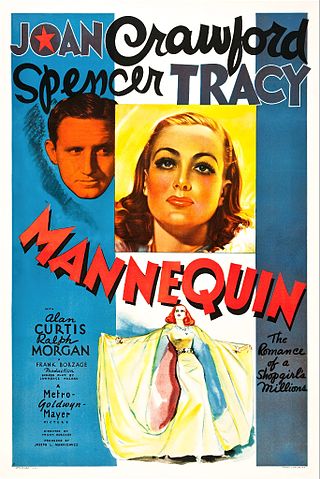
Mannequin is a 1937 American drama film directed by Frank Borzage and starring Joan Crawford, Spencer Tracy, and Alan Curtis. Crawford plays Jessie, a young working class woman who seeks to improve her life by marrying her boyfriend, only to find out that he is no better than what she left behind. She meets a self-made millionaire with whom she falls in love despite his financial problems.

Orontea is an opera in a prologue and three acts by the Italian composer Antonio Cesti with a libretto by Giacinto Andrea Cicognini.
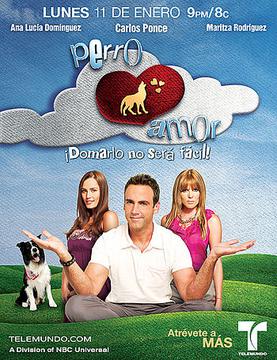
Perro Amor is a Spanish-language telenovela produced by the United States-based television network Telemundo that originally ran in the United States from January to July 2010. This is a Colombian remake of the 1998 Cenpro Televisión daily telenovela Perro Amor, written by Natalia Ospina and Andrés Salgado. As with most of its other telenovelas, Telemundo broadcast English subtitles as closed captions on CC3.

Valientes is a telenovela from Argentina, aired by Canal 13 at the prime time and produced by Pol-Ka. Main actors are Luciano Castro, Julieta Díaz and Arnaldo André, and it is one of the most successful TV programs from Argentina of 2009. With a daily rating of nearly 27,4 points, it is the most successful production of Pol-Ka. It run from February 2009 to 2010. From April 16, 2010 the show was airing in Slovakia on JOJ Plus but due to poor ratings it was cancelled after 48 episodes, the rest of the episodes start broadcast on JOJ Plus from March 6, 2012 taking the slot at 4 AM.
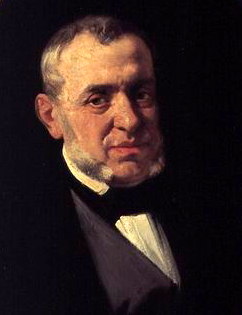
Elisa e Claudio, ossia L'amore protetto dall'amicizia is a two-act melodramma semiseria by the 19th Century Italian composer Saverio Mercadante from a libretto by Luigi Romanelli based on the play, Rosella by Filipo Casari. It received its premiere performance at La Scala in Milan on 30 October 1821.
La Spinalba is an opera in three acts, with music by Francisco António de Almeida to an Italian-language libretto whose author is unknown. It was premiered in the Portuguese Carnival season of 1739 at the Palácio da Ribeira, Lisbon.

Admeto, re di Tessaglia is a three-act opera written for the Royal Academy of Music with music composed by George Frideric Handel to an Italian-language libretto prepared by Nicola Francesco Haym. The story is partly based on Euripides' Alcestis. The opera's first performance was at the Haymarket Theatre in London on 31 January 1727. The original cast included Faustina Bordoni as Alcestis and Francesca Cuzzoni as Antigona, as Admeto was the second of the five operas that Handel composed to feature specifically these two prime donne of the day.
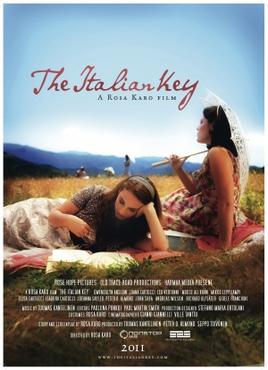
The Italian Key is a 2011 film directed and written by Rosa Karo. The film follows the story of Cabella, a 19-year-old orphan girl, who travels to Italy after she has inherited an old key from her unrelated Uncle Max.
Elisa di Rivombrosa is an Italian television series about a love story in 18th century Italy between Fabrizio Ristori, a young Italian Count, and his mother's maid, Elisa. It was broadcast on Mediaset for two seasons from 2003 to 2005:
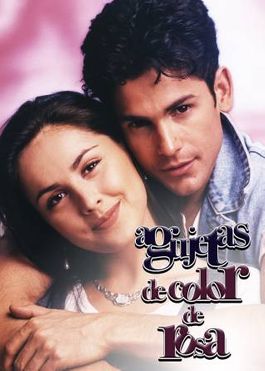
Agujetas de color de rosa is a Mexican telenovela produced by Luis de Llano Macedo for Televisa in 1994.
The Black Angel is a 1942 Mexican drama film directed by Juan Bustillo Oro, who co-wrote the screenplay with Humberto Gómez Landero and co-produced the film with Jesús Grovas.

Siface re di Numidia is a libretto in three acts by Pietro Metastasio. It is a reworking of La forza della virtù by de:Domenico David and was Metastasio's first work as a librettist. it was first performed with a setting to music by Francesco Feo on 13 May 1723 at the Teatro San Bartolomeo, Naples.
References
- ↑ Hermann Abert, Assistant Professor of Music Cliff Eisen, Cliff Eisen - W. A. Mozart - Page 291 0300072236 2007 Leonardo Leo's opere buffe are written in the same style as Vinci's, except that there is a more pronounced tendency here to include more serious songs. ... The quartet in act one, scene fourteen of L'Alidoro (1740), for example, is a canon.
- ↑ Graham Hood. Leonardo Leo (1694-1744) and His Comic Operas Amor vuol sofferenze and Alidoro (Ph.D., Musicology, Cornell Univ., 1973).